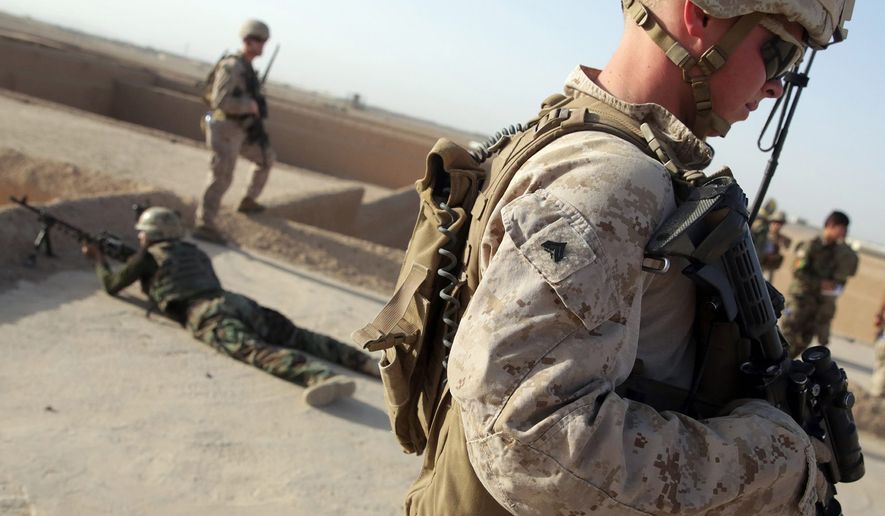The Trump administration’s decision to abandon a timeline-based strategy for the war in Afghanistan in favor of a conditions-based approach to the conflict could result in an American military presence remaining in the country for decades, says a former commander of U.S. forces there.
Abandoning the Obama-era strategy of establishing Afghan policy around fixed timelines for the withdrawal of U.S. forces from the country was the single best decision made within the administration’s new war plan, retired Marine Corps Gen. John Allen said Wednesday.
“I think we will [still] be there for 16 years, but I do not think it has been a 16-year loss” thus far in Afghanistan, where the longest war in American history is now in its 17th year, the former four-star general said. “It is not about winning the war, it is about winning the peace” in Afghanistan, he added, noting the prolonged U.S. military presence in places such as South Korea and Germany were prime examples of the efficacy of such a strategy.
His comments came amid reports that Defense Secretary James Mattis had officially approved orders for additional U.S. troops to be deployed in Afghanistan. The Pentagon chief did not provide details on specific numbers, but the approval likely falls in line with the roughly 3,900 American service members called for in Mr. Trump’s Afghan war plan.
But Mr. Allen said Wednesday that the decision to transition to an open-ended, conditions-based strategy in Afghanistan far outweighed the significance of the minimal troop surge called for by the White House and Pentagon. The Obama White House’s decision to surge 10,000 fresh U.S. troops in 2009, instead of the 20,000 called for by commanders such as Mr. Allen, while setting a hard deadline for their departure were the fatal flaws in the Obama plan.
“We were too few and too short on time” to have any chance of helping Afghan forces battle back the Taliban and other extremist terror groups fighting U.S. and Afghan forces in the country, Mr. Allen said during a roundtable discussion in Washington.
Mr. Trump admitted his initial plan for Afghanistan was to institute a full withdrawal of U.S. forces, and reluctantly adopted the current war plan, only after being convinced by his national security team that a full pull out would be catastrophic.
Such a decision “would be hung around his neck as the president who lost Afghanistan,” Mr. Allen said, adding the White House “needs to stay this course.”
• Carlo Muñoz can be reached at cmunoz@washingtontimes.com.




Please read our comment policy before commenting.